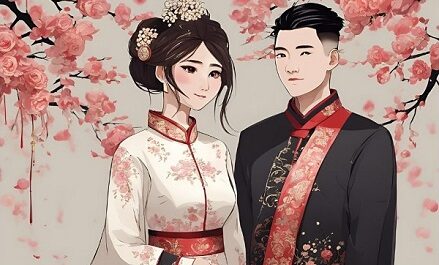Learn Chinese Idiom Name, Pinyin, English
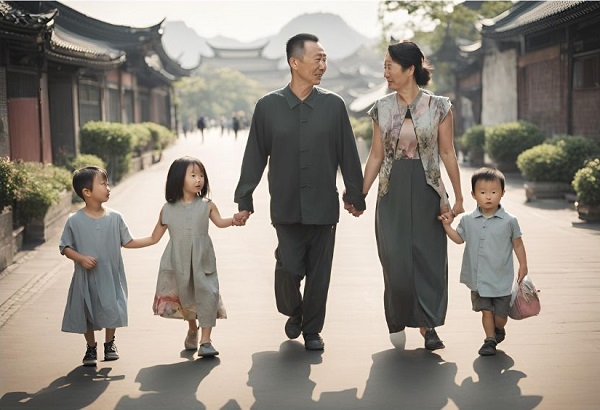
- Idiom in Chinese-携儿带女。
- Pinyin of Idiom– xié ér dài nǚ.
- Idiom’s Meaning in English– This Chinese idiom refers to the act of bringing along one’s children and womenfolk, often in the context of a journey or relocation. It signifies a family’s unity and cohesion, especially when facing challenges or moving to a new place.
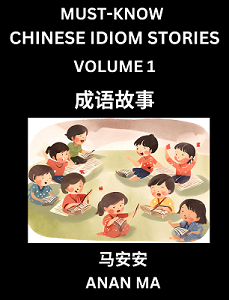
Chinese Idiom Stories Books (HSK All Levels):
- Books to Learn Chinese Idiom Stories (Part 1)
- Books to Learn Chinese Idiom Stories (Part 2)
- Books to Learn Chinese Idiom Stories (Part 3)
Learn Chinese Idiom Story in English (成语故事的英文)
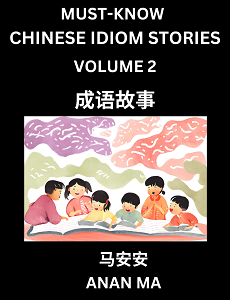
In ancient times, there was a farmer named Li Ming who lived in a remote village. Due to consecutive droughts and poor crop yields in his hometown, Li Ming decided to take his family to another place in search of a better life. Thus, he set out on a long journey, bringing along his children and wife. The journey was arduous, filled with rain, wind, hardships, and tribulations. However, Li Ming held onto his children’s hands tightly, protecting his wife and daughter throughout. Eventually, they arrived at a new homeland. There, they worked diligently and eventually led a happy life.
Learn Idiom Story in Chinese (成语故事)
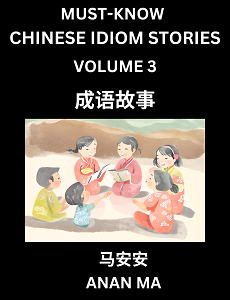
在古代,有一个叫李明的农夫,他生活在一个偏远的村庄里。由于家乡连年的旱灾,庄稼收成不好,李明决定带着家人去另一个地方寻找更好的生活。于是,他携儿带女,挑着行李,踏上了漫长的迁徙之路。一路上,他们经历了风雨、困苦和磨难,但李明始终紧紧牵着孩子们的手,保护着妻子和女儿,最终到达了新的家园。在那里,他们辛勤耕作,最终过上了幸福的生活。
Learn Keywords with English, Simplified Chinese Characters, and Pinyin (关键词)
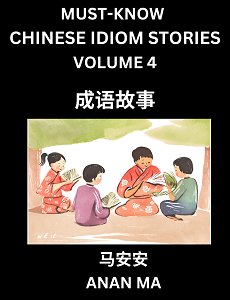
- 在古代(zài gǔ dài): In ancient times
- 农夫(nóng fū): Farmer
- 村庄(cūn zhuāng): Village
- 旱灾(hàn zāi): Drought
- 庄稼(zhuāng jia): Crops
- 迁徙(qiān xǐ): Migration
- 行李(xíng li): Luggage
- 漫长(màn cháng): Long
- 磨难(mò nàn): Tribulations
- 紧紧(jǐn jǐn): Tightly
- 妻子(qī zi): Wife
- 女儿(nǚ ér): Daughter
- 家园(jiā yuán): Homeland
Pinyin of Idiom Story (故事的拼音)
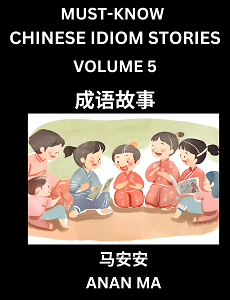
Zài gǔdài, yǒu yīgè jiào lǐ míng de nóngfū, tā shēnghuó zài yīgè piānyuǎn de cūnzhuāng lǐ. Yóuyú jiāxiāng liánnián de hànzāi, zhuāngjià shōuchéng bù hǎo, lǐ míng juédìng dàizhe jiārén qù lìng yīgè dìfāng xúnzhǎo gèng hǎo de shēnghuó. Yúshì, tā xié er dài nǚ, tiāozhe xínglǐ, tà shàngle màncháng de qiānxǐ zhī lù. Yī lùshàng, tāmen jīnglìle fēngyǔ, kùnkǔ hé mónàn, dàn lǐ míng shǐzhōng jǐn jǐn qiānzhe háizimen de shǒu, bǎohùzhe qīzi hé nǚ’ér, zuìzhōng dàodále xīn de jiāyuán. Zài nàlǐ, tāmen xīnqín gēngzuò, zuìzhōngguò shàngle xìngfú de shēnghuó.


